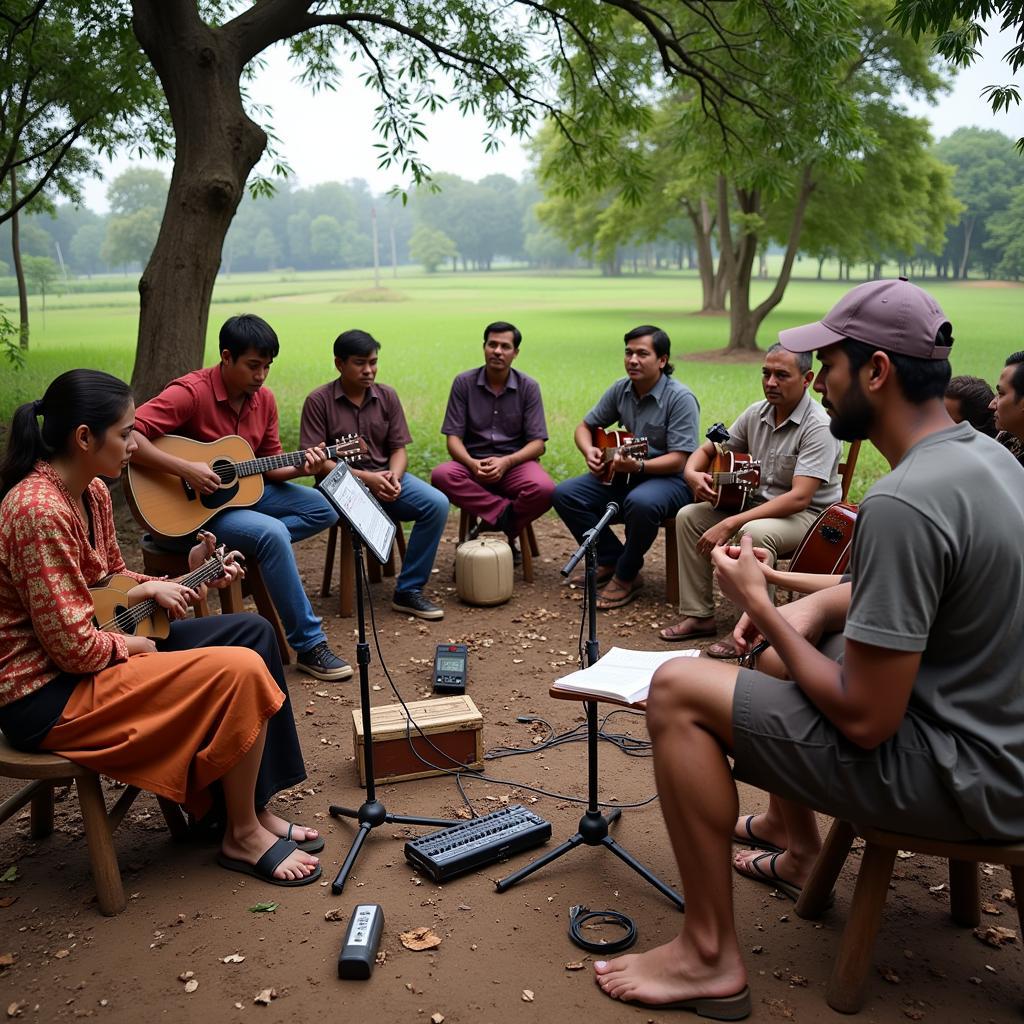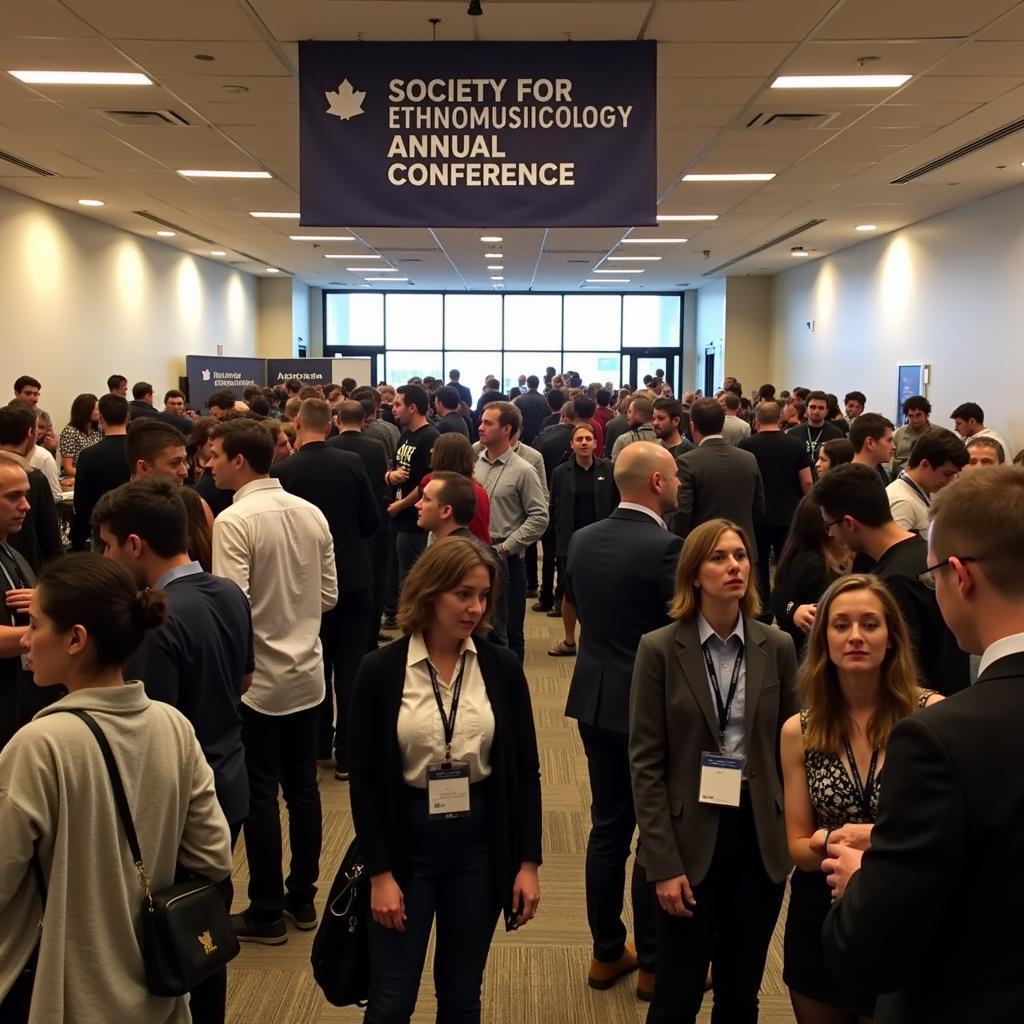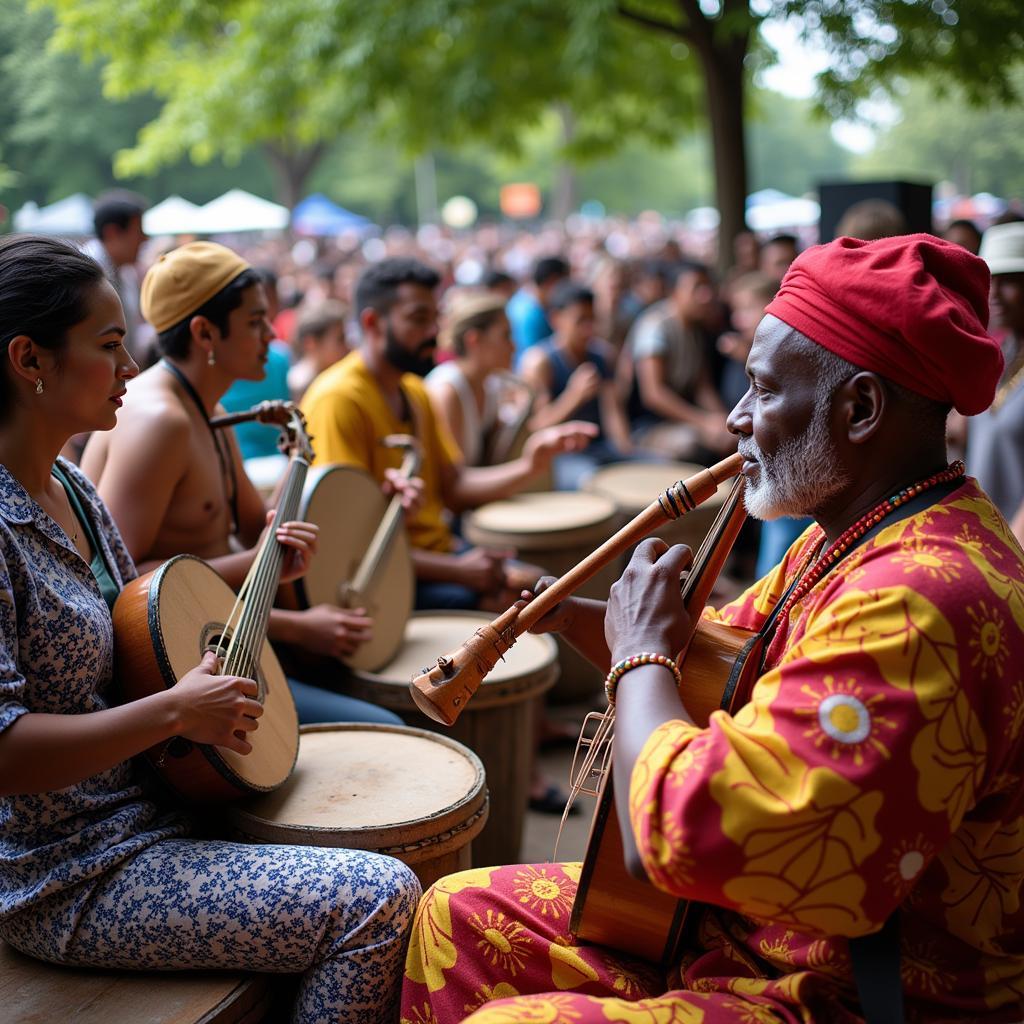The Society For Ethnomusicology (SEM) serves as a vibrant global community dedicated to the study and appreciation of music from diverse cultures. More than just an academic pursuit, ethnomusicology, at its core, seeks to understand the intricate ways music intersects with every aspect of human life: history, ritual, identity, and expression.
Unveiling the Essence of Ethnomusicology
Ethnomusicology, as a field of study, goes beyond the analysis of musical notes and rhythms. It delves into the very soul of music, exploring how sounds shape and are shaped by the cultural contexts in which they exist. Imagine listening to a lullaby from a remote village in the Andes and uncovering its connection to ancient agricultural rituals. Or consider the pulsating rhythms of West African drumming and its role in fostering community and celebrating heritage. These are just glimpses into the fascinating world that ethnomusicologists strive to illuminate.
 Ethnomusicologist conducting field recording
Ethnomusicologist conducting field recording
The Society for Ethnomusicology: A Hub for Musical Discovery
Founded in 1955, the Society for Ethnomusicology (SEM) has been a driving force in advancing the field. The Society boasts a diverse membership of scholars, musicians, educators, and music enthusiasts from around the world, all connected by a shared passion for exploring the world’s musical diversity.
Through its publications, conferences, and initiatives, SEM provides a platform for:
- Scholarly Exchange: SEM facilitates the sharing of cutting-edge research, fostering dialogue and collaboration among ethnomusicologists globally.
- Performance and Education: The Society promotes the performance and teaching of music from diverse cultures, ensuring these traditions continue to thrive.
- Preservation and Archiving: Recognizing the importance of safeguarding musical heritage, SEM actively supports initiatives to document and preserve musical traditions around the world.
 Annual SEM Conference
Annual SEM Conference
Why Ethnomusicology Matters in a Globalized World
In an increasingly interconnected world, understanding diverse musical expressions is more crucial than ever. Ethnomusicology fosters:
- Cross-Cultural Understanding: By studying the music of different cultures, we gain insights into their values, beliefs, and histories, fostering empathy and breaking down barriers.
- Appreciation for Diversity: Ethnomusicology celebrates the richness and beauty of human musical creativity in all its forms, encouraging us to value and respect cultural difference.
- Social Justice and Equity: Through music, ethnomusicologists often address issues of social justice, giving voice to marginalized communities and challenging inequality.
How to Engage with Ethnomusicology
Whether you’re a seasoned scholar or simply curious about the world of music, there are numerous ways to engage with ethnomusicology:
- Attend a Concert or Performance: Seek out performances of music from cultures unfamiliar to you.
- Visit a Museum: Many museums feature exhibits on musical instruments and traditions from around the world.
- Explore Online Resources: Websites such as the Society for Ethnomusicology offer a wealth of information, including articles, recordings, and event listings.
 A diverse group of people enjoying a world music concert.
A diverse group of people enjoying a world music concert.
Conclusion
The Society for Ethnomusicology plays a vital role in fostering appreciation for the power and beauty of music in all its cultural diversity. By embracing the study and experience of music from around the globe, we can cultivate a deeper understanding of ourselves and the world around us, ultimately building bridges of peace and understanding through the universal language of music.